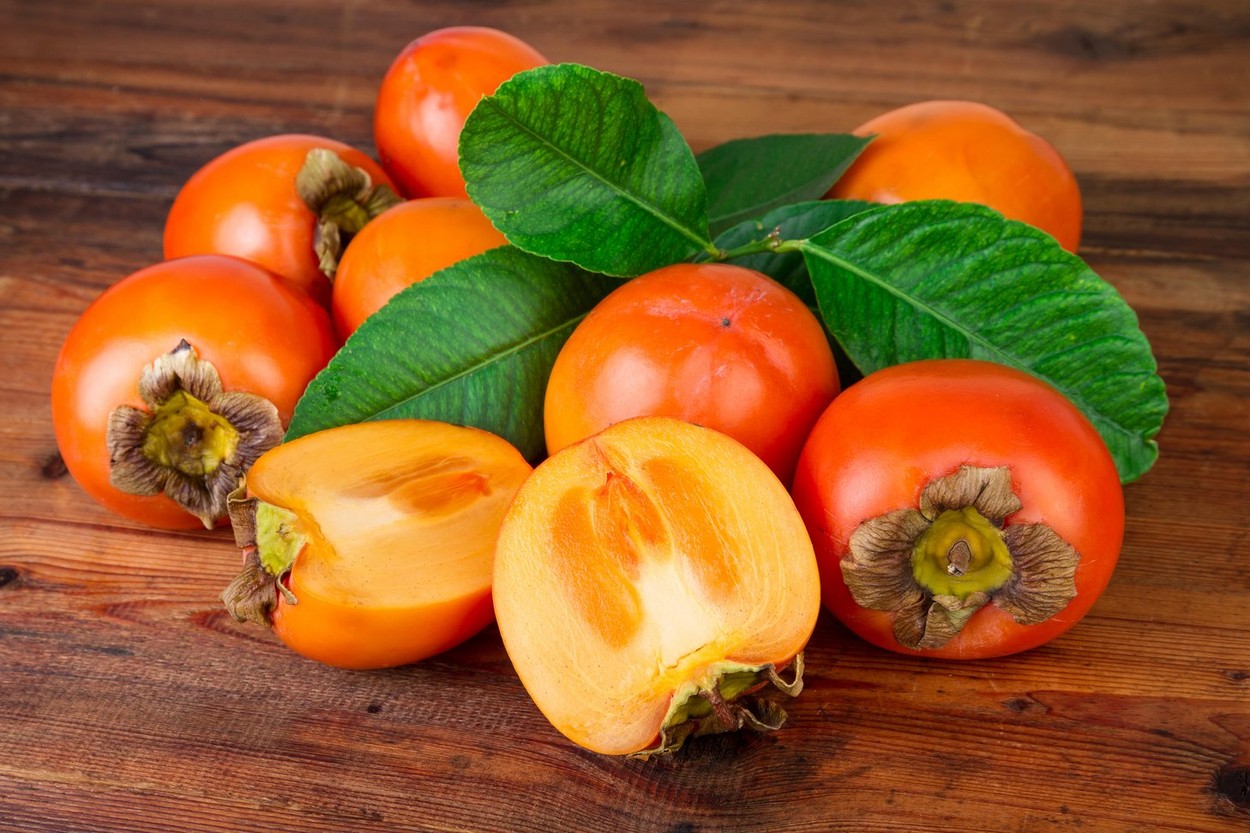Often referred to as the “fruit of the gods,” kaki (also known as persimmon) is a sweet, vibrant fruit that not only delights the palate but also packs a serious nutritional punch. With its bright orange color, honey-like flavor, and a name rooted in ancient mythology, kaki has been cherished for centuries in Asian cultures and is now gaining popularity worldwide.
But what makes this fruit so special?
In this blog post, we’ll explore the key properties, health benefits, and ways to enjoy kaki in your diet.
🌟 What Is Kaki?
Kaki, or persimmon (Diospyros kaki), is a fruit native to China and widely cultivated in Japan, Korea, and increasingly in Mediterranean countries. The word Diospyros comes from the Greek language, meaning “divine fruit” or “fruit of the gods.”
There are two main types of kaki:
- Astringent varieties (like Hachiya): High in tannins when unripe—must be fully soft and ripe before eating.
- Non-astringent varieties (like Fuyu): Can be eaten while still firm and crisp.
🍊 Nutritional Properties of Kaki
Kaki is more than just a sweet treat—it’s full of vitamins, minerals, and antioxidants. Here’s a closer look at its nutritional makeup:
- Vitamin A: Supports eye health, immune function, and skin regeneration.
- Vitamin C: Strengthens the immune system and promotes collagen production.
- Manganese: Important for bone health and metabolism.
- Fiber: Aids digestion and supports gut health.
- Antioxidants: Includes beta-carotene, lutein, and zeaxanthin, which help protect cells from damage.
One medium-sized kaki contains around:
- 70 calories
- 15–20% of the daily recommended intake of Vitamin C
- 6 grams of fiber
- Natural sugars for quick energy
💪 Health Benefits of Kaki
- Boosts Immunity
- With high levels of vitamin C and A, kaki helps protect the body from infections and seasonal illnesses.
- Supports Eye Health
- Rich in beta-carotene, lutein, and zeaxanthin, kaki helps prevent age-related macular degeneration and supports night vision.
- Improves Digestion
- Thanks to its soluble and insoluble fiber content, kaki aids in digestion, prevents constipation, and promotes gut health.
- Heart-Healthy
- The antioxidants in kaki reduce inflammation and oxidative stress, while fiber helps manage cholesterol levels.
- Supports Healthy Skin
- Vitamin C plays a vital role in collagen synthesis, helping maintain youthful, healthy skin.
- Natural Energy Booster
- The natural sugars in kaki provide a quick source of energy, making it an excellent snack before or after exercise.
🥗 How to Enjoy Kaki
Kaki is versatile and can be enjoyed in both sweet and savory dishes. Here are a few ideas:
- Fresh: Simply slice and eat raw, especially non-astringent varieties like Fuyu.
- Smoothies: Blend with banana, almond milk, and a touch of cinnamon.
- Salads: Pair with arugula, walnuts, goat cheese, and balsamic glaze.
- Desserts: Use in puddings, tarts, or baked goods.
- Dried: Dried kaki is a chewy, naturally sweet snack that lasts longer.
Tip: If you have an astringent kaki, let it ripen until it becomes jelly-like before eating—it will taste incredibly sweet and lose its bitterness.

Kaki truly lives up to its nickname as the “fruit of the gods.” With its lush sweetness, vibrant color, and wealth of health benefits, it’s both a treat for your taste buds and a gift to your body. Whether you enjoy it fresh, dried, or in your favorite recipes, adding kaki to your diet is a simple and delicious way to nourish your health.
Have you tried kaki before? What’s your favorite way to eat it?
Share your thoughts in the comments below!

